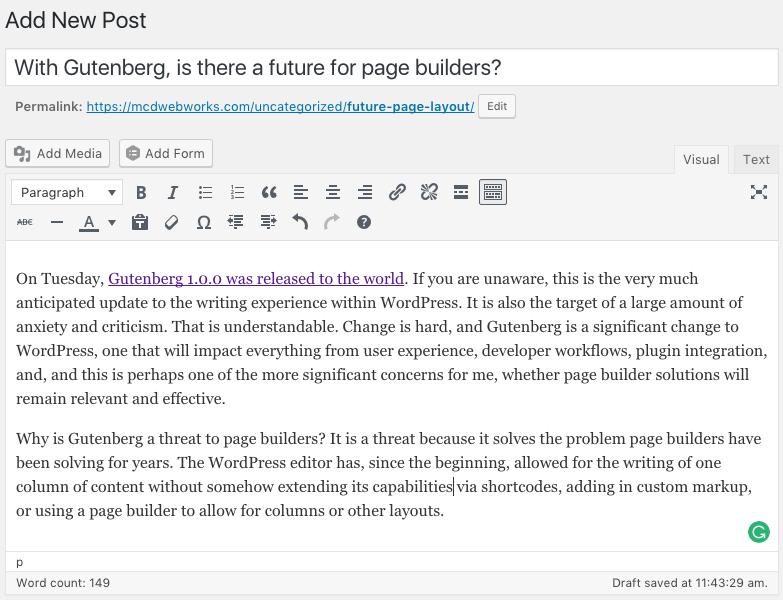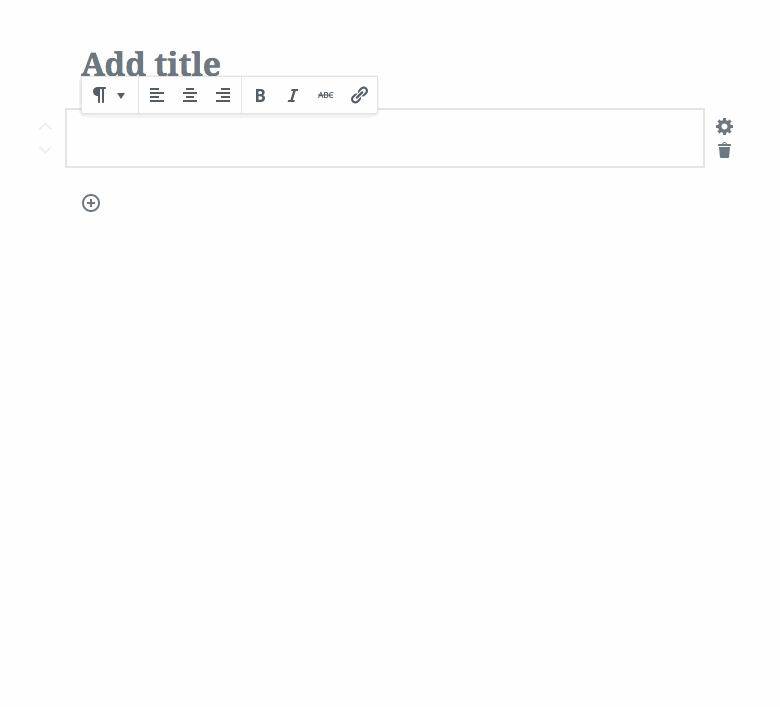With Gutenberg, is there a future for page builders?
On Tuesday, Gutenberg 1.0.0 was released to the world. This is the very much anticipated update to the writing experience within WordPress. It is also the target of a large amount of anxiety and criticism. That is understandable. Change is hard. Gutenberg is a significant change to WordPress. It will impact everything from user experience, developer workflows, and plugin integration. I also wonder whether page builders have a future in a Gutenberg world.
Why is Gutenberg a threat to page builders? It is a threat because it solves the problem page builders have been solving for years. Since the beginning. the WordPress editor has allowed for the writing of one column of content. When writing blog posts, which was what WordPress was developed to do, this isn’t a problem.

WordPress is not only a blogging platform anymore. It has evolved into a full fledged content management system (CMS). Some sites developed on WordPress do not even have blogs (GASP!). Those using WordPress as a CMS need more options for how to display their content than doing so in one column. Without using shortcodes, adding custom markup, or using page builder plugins like Beaver Builder, Divi, or even Advanced Custom Fields flexible content, this was is not possible.
Enter Gutenberg. According to Matt Mullenweg, Gutenberg will allow developers and agencies, “to create interactive templates that clients can easily update without breaking things or dealing with custom post types,” plugin developers to, ” completely integrate into every part of WordPress, including posts, pages, custom post types, and sidebars without having to hack TinyMCE or squeeze their entire feature behind a toolbar button,” and users to, “build the sites they see in their imaginations. They’ll be able to do things on mobile they’ve never been able to before. They’ll never have to see a shortcode again.”

That is a lot of big promises. I balk at the idea of getting rid of custom post types, as this has proven invaluable in managing content on client sites. But, I see the value in the vision for Gutenberg.
Those using page builders have to ask whether they should continue to do so or move to Gutenberg. Developers are going to have to ask themselves a similar question. Should they continue developing for and integrating page builders? Should they shift their attention to developing blocks to use within Gutenberg? For both users and developers, these questions are not easy to answer right now.
Change is hard, and there are many who are skeptical of the promises about Gutenberg. There is a lot of anxiety about this right now. Nobody wants to spend their time working on or with projects that Gutenberg may soon make obsolete.
The real question is whether Gutenberg will better serve both users and developers than page builders currently do. If so, great, I love sticking to native functionality. If not, we’ll continue to have diverse methods of accomplishing page layouts. That diversity isn’t in itself bad, but it would be nice if we could all be on the same page with Gutenberg (see what I did there?). For now, I remain cautiously pessimistic.
